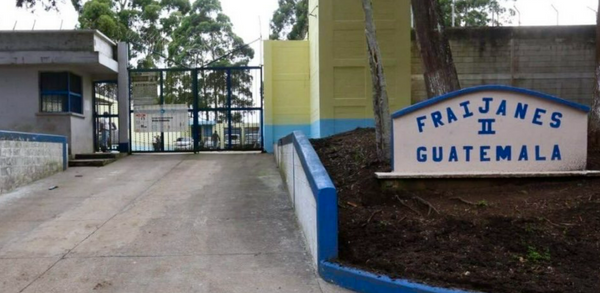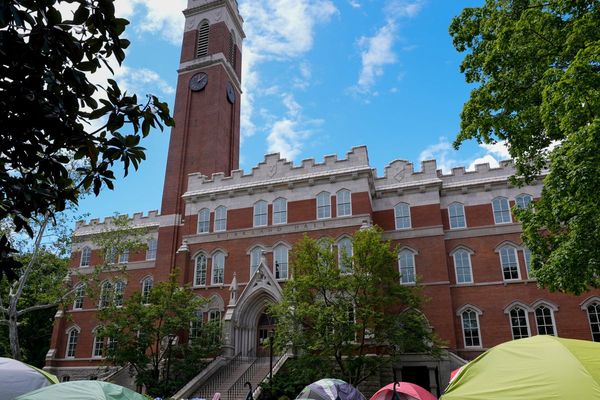
Wow, we knew the referendum period was going to get nasty, but we didn’t perhaps realise it was going to get so stupid, so quickly. The weekend had a double whammy, starting with the shocking — shocking, I tell you — news that Alfred Deakin, one of the nation’s founders was, gasp, a “white” ethnonationalist and racial Social Darwinian. This was followed hot on the heels by the shocking — shocking, I tell you — revelation that William Walkley, for whom our overblown, self-indulgent journalism awards were named, was a White Australia bloke in 1961.
The Walkleys don’t matter much to most Australians, but the piece, by SMH/Age culture news editor Osman Faruqi, served to cloud a very effective boycott campaign against a renewed award. A protest against sponsorship by fossil fuel company Ampol (which Walkley founded) turning into a culture war — outstanding stuff. The Alfred Deakin piece was stranger and more indicative of the place we appear to be at, as the Yes campaign for the Voice to Parliament flounders in the doings of the actual politics and starts taking on vague talk of destiny and tragedy, progressive grandees already having a defeat on their mind.
Deakin, as a quick crib, was a Melbourne-born politician; a prominent figure in Victorian politics from a young age in the 1880s; a follower of the “social liberalism” of TH Green, which saw freedom as invested in community, i.e. national self-reliance and a compact between social classes, which required a strong state; and a protectionist regime. He was a prime mover of Federation, prime minister three times, and the man who, more than most (from the bourgeois side), cemented the social attitudes that founded our idea, distinct from the US, that different sections of society owed something to each other. Deakin, like many at the time, also considered himself to be an instrument of God in the securing of a right order on Earth.
He also, like practically everyone at the time, thought in racial collective terms, seeing one’s individual identity as secondary to race. By the turn of the 20th century, this was a highly specific conception — of the “Anglo-Saxon”, “Irish”, “French”, etc, race — which was nevertheless overarched by a notion that the world was fundamentally divided into white, black, Asian and native peoples. The founding act of Federation was the White Australia policy — but Deakin wasn’t our first prime minister, forcing it through. Practically everyone would have said that the idea of Australia made no sense without it.
Peter Sharp, one of many dozens of Deakin’s descendants, doesn’t seem to see it that way. As conveyed to Tony Wright in Saturday’s Age/SMH, he believes his faint blood tie to Deakin has landed him with the responsibility of expunging his great-something’s original sin of, er, emphasising the importance of blood ties as a source of identity.
Sadly, this is simply a piece of white saviour narcissism that distorts the historical record. Deakin’s narcissism was conveyed in a manner entirely characteristic of the time, the notion that God had ordained him as a vessel to carry out his will. But the will to be carried out was already that of the people. People simply took what they saw, that European societies were technologically advanced, powerful and purposeful on a grand scale, and thus through a distorting lens of Social Darwinist theories they saw this as an expression of biology. The treatment of Indigenous peoples might be cruel or it might be kind, but it was never equal. Only the most marginal people — a few radical Protestants and Catholics and some communists, a principled classical liberal or two, and an occasional conservative who saw such ideas as overly totalising — were able to think outside of this all-encompassing framework.
So, singling out Deakin is bad history (and Wright — sadly, because he’s the Age’s best writer — misframes the work of the academics he quotes by suggesting they attribute a unique role to Deakin in the creation of white Australia). But what’s the reason for it? One suspects it’s because many progressive people, especially older Anglo ones, are finding the damning of the whole of Australian history under the single notion of colonialism a bit much to take. One imagined that this would happen eventually — no people can live indefinitely, or for very long, with a notion of their own illegitimacy. Deakin serves, ironically enough, as both the totemic father to be ritually killed and the scapegoat sent out into the historic wilderness bearing our sins.
To do this requires a further misconstruction of Australian history, and this is where it gets really interesting. Deakin’s pushing of the half-caste provisions — separating children of mixed Aboriginal and white heritage from Aboriginal communities — is framed in the article as an expression of a white supremacism that was actively hurrying Aboriginal peoples to extinction. It wasn’t; it was the opposite. It was the progressivism of its time, the idea that mixed-race children could be “saved” from the presumed inevitable fate of Aboriginal peoples, even if many who believed in the practice recognised at the time that the individual application of it was cruel.
This points to the wider truth: the creation of white Australia was driven not by the motive of a disdainful, active exterminism — though there was plenty of that in ad hoc massacres — but by the progressive notion that something “had to be done”, given that killing people without cause, of whatever race, was increasingly seen as abhorrent.
From the new Protection Acts of the 1860s through to the eugenics-inspired child removals of the early 1900s, one calamity after another was frequently driven by affirmations of humanism, from within a racialist conception of human life. The White Australia policy was driven in part to eliminate blackbirding slavery from Queensland. The Protection Acts, which had the effect of excluding Indigenous peoples from employment and destroyed developing hybrid communities such as Coranderrk, were, in part, aimed at eliminating the virtual slave use of Aboriginal peoples on remote stations. Much of the push for these laws was disingenuous as regards humanitarianism, but enough of this movement had to be genuinely humanitarian in its conception and drive for the cynicism to have something to co-opt.
The point of this is not to worry about the honour or reputation of some dead white people. It is to point out that any attempt to separate Australian history from ethnonationalist imperatives is ludicrous. It is utterly woven in. The Harvester judgment, arguably a great achievement for humanity — certainly seen that way across the world in 1907 — was achieved by people who mostly thought they were achieving it for white people. Even Mediterraneans weren’t included in the operational conception of it. That it was a universal achievement was embedded in its law, which could be later applied to everyone, as conceptions of race changed. These conceptions only changed substantially after World War II, and then only slowly.
It’s worth people asking themselves what received wisdom of today they may have to defend or apologise for in a few decades’ time. If racialism is too distant to imagine yourself into, it should be clear that, for example, a lot of the “sexual liberation” of the 1970s now looks like systematic exploitation and degradation hooked up to capitalism. What widespread progressive beliefs might possibly look atrocious in retrospect, from 2050, as the moral and existential ground shifts again?
The stupidity of Faruqi’s pinging of William Walkley for some racial-community sentiments in 1961 is that it not only hijacks the cartoonists’ Ampol protest for something else, but once again misconstructs the relationship between progressive policies and outdated sentiments. For heaven’s sake, isn’t it obvious that the 1948 transformation of our immigration policy, by quantity and category, was not deterred by sentiments like Walkley’s but driven by them? We were 8 million people on a continent, underneath a larger continent rising up, and whose forces had bombed our cities five years earlier. Mass immigration was needed for military and economic purposes. So the notion of “new Australians” was invented, and people whose numbers had hitherto been limited were invited in.
When we expanded the catchment area of migrants to Asia, we replaced the assimilationism of “new Australians” with “multiculturalism”. That’s what multiculturalism is: an enforced social technology to conform everyday culture to state requirements. One of its unintended consequences — the “nation of migrants” schtick — was to push Indigenous claims, which had developed rapidly and strongly in the late 1960s, into the background, as priority of origin was delegitimised. The world’s peoples stopped being racialist in their thinking very slowly — really, most of them still haven’t. Take a survey and you’ll find a substantial chunk of the population still believes in essential race characteristics of the “good at rhythmic music/bad at government” sort. Funny old world, but not if you have to live in it.
What’s the takeaway from all this? Well, in practical political terms, trying to sell a Yes vote by freshly demonising everything we’ve done and are is really, really dumb. The Deakin–Walkley double over the weekend was accompanied on Monday by another set of “this moment of destiny” op-eds by the usual suspects, more expression of the preening narcissism that has characterised white Yes campaigns.
For most Australians, for better or worse, this “destiny” thing simply isn’t the case. To some degree, the Voice is an improvisation dodged up by leaders who believe — correctly or otherwise — that Indigenous claims to right have so little legitimacy in Australia that this is the best that they can reasonably expect to get in a majority-vote national process. It’s not a consecration of reconciliation. Whatever cultural effects it will have, it is intentional powerlessness permanently inserted into the constitution, which Deakin helped create. In giving political legitimacy subaltern status, it has continuities with the progressivist Protection Acts of the 19th century, and with the same tangle of motives. That Indigenous leaders have accepted or championed it does not alter that. They had to make a lot of “least worst” choices in the 19th century too.
Julianne Schultz in Guardian Australia and Sean Kelly in the Age/SMH are wanting to make this vote “a test” of the nation, like, it must be said, a pair of sucks reminding a teacher they forgot to set an exam. How they love a test, the smart kids. Other people, whose educational quals went “straight to the pool room” and whose votes the Yes camp needs, don’t want to feel they have to submit their whole life and heritage to assessment in order to support a modest reform — especially one that is otherwise being sold as geared towards better practical outcomes for Indigenous peoples.
Just stop trying to make this process all about you, the people who already agree with it, trying to own and disown your nation at the same time, and sell the damn thing to the tranche of waverers you need, who are — as researchers Bob Birrell and Katharine Betts have noted — very simply and easily identified as the non-tertiary educated, who, by and large, are working off different principles of cultural process and meaning. It is not they I am speaking of when I say, ugh, the stupid, against it there is no protection.







